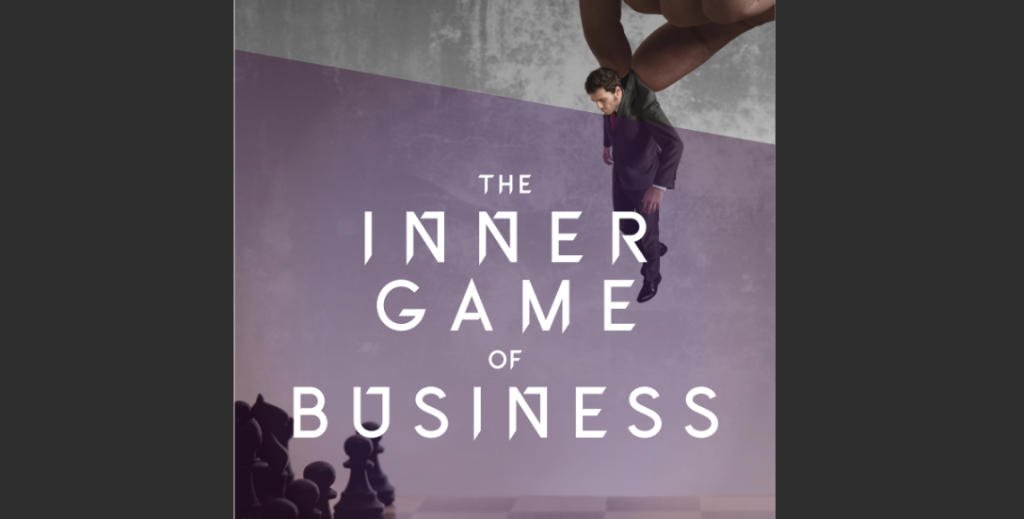Business is a game. Play it to win, but not at all costs.
When we play sports, we usually play to win. Sometimes to win just a game, sometimes a championship. Other times we play to build a dynasty. Regardless, it’s still just a game we’re playing. It’s the same with business.
At their core, businesses are social constructs that assist people in living out their life’s ambitions. Not just the business owner, but all the people who work there. Nobody “needs” to own or work at a business to live their life. It’s a choice we make.
Some people choose to participate in the “game” of performing arts, sports, social service, military science, education, or religion. There are an infinite number of games we can play. Regardless of what it is, our choice is intended to help us live a fulfilling life as we strive to achieve our ambitions.
The high cost of winning at all costs.
What happens when we get so focused on winning that we lose perspective on the things that really matter?
Marshall Goldsmith, one of my favorite business authors, thought leaders, and high-level executive coaches, captured this when he said that business leaders are seldom brought down by a lack of skill or intelligence. Instead, it’s usually because of self-destructive interpersonal behaviors. Chief among them is the need often felt by competitive leaders to “win at all costs and in all situations—when it matters, when it doesn’t, and when it’s totally beside the point.”
Business owners lose their way when they start confusing the game they’re playing with life itself. This is easy to do in the startup years of a company when our adrenalin is running high and our focus is consumed with just surviving. This is when priorities can get distorted and things can easily go sideways—both in our business and often in our personal lives. Usually this happens gradually, with one small decision, disagreement, or argument at a time. It happens when we move beyond a healthy focus on our intended outcomes and let our competitiveness mutate into an obsession to win. This obsession becomes toxic when it displaces other, more important elements in life or when we start bending or breaking the rules in our attempt to win.
“Gaming” the game.
I find it curious how often we soften unflattering terms by giving them friendlier names. “Gaming” is one of them. Gaming essentially means cheating. So, are we “gaming” a system, or are we really cheating a system? In sports, teams get penalized for stealing signals from their opponents and for “juicing” baseball bats or footballs. Players get suspended for juicing their bodies. Winning at all costs does have a cost. If we need to cheat to win at something shouldn’t we question our motives for playing? It’s no different in business.
We raise our kids to tell the truth, play fair, and not cheat. It’s the same counsel we should give ourselves whenever we’re tempted to do otherwise, claiming it doesn’t matter as long as we don’t get caught. (More on this in Part III of this series).
If we’re going to “game” our customers by cutting corners or overstating charges; if we’re going to “game” our employees by not following through on our promises; when we justify unethical decisions simply because they’re legal, or when we choose not to deal all our cards from the top of the deck, then we should reconsider including words like integrity and trust in our company’s Core Values and Mission statement.
If we’re going to play a game, it’s always nice to win. But winning any game is always measured more broadly than just having the best score when the time runs out. It’s about learning and growing as a player, overcoming obstacles and opposition, and winning as a team. It’s also about not losing ourselves or our integrity in the process.
Whenever I’m approached by a business owner who’s distressed by their struggling company, I’m reminded of advice I was given early in my career by the consultant helping me with my own troubled company. He didn’t ask me about my company’s financial condition or the products or services we sold. Instead, he asked me if I was healthy and loved. I told him that, yes, I was healthy and that my wife and I were very much in love. He said, “Good. Those are most important. When you have those two things, you’ve got it licked, and it’s a lot easier to fix your business.”
Play the game with passion but remember that it’s only a game.



